PROOF Over Process:
A Better Mid-Market Framework
Mid-market companies pursuing digital transformation often start with what seems like the most straightforward approach. They partner with the largest consulting firm they can afford.
Mark Ajzenstadt, founder and chairman of Limestone Digital, understands the reasoning. Companies look to a firm’s size and reputation as indicators of quality and capability, because in many cases, this holds true.
However, this approach can create unexpected challenges for mid-market data modernization projects. Mid-market companies face a unique situation: they need the same level of custom solutions as enterprises to consolidate fragmented data and prepare for AI, but they’re working with tighter budgets and timelines that leave little room for error.
Think you’re already prepared for AI? Put your data foundation to the test using our tactical guide.
Large firms will naturally apply their proven methodologies. However, these approaches — designed for enterprise budgets and timelines — don’t always align with mid-market constraints. “If you need to move quickly and see outcomes immediately, bigger consultancies are often not the answer,” Mark explains.

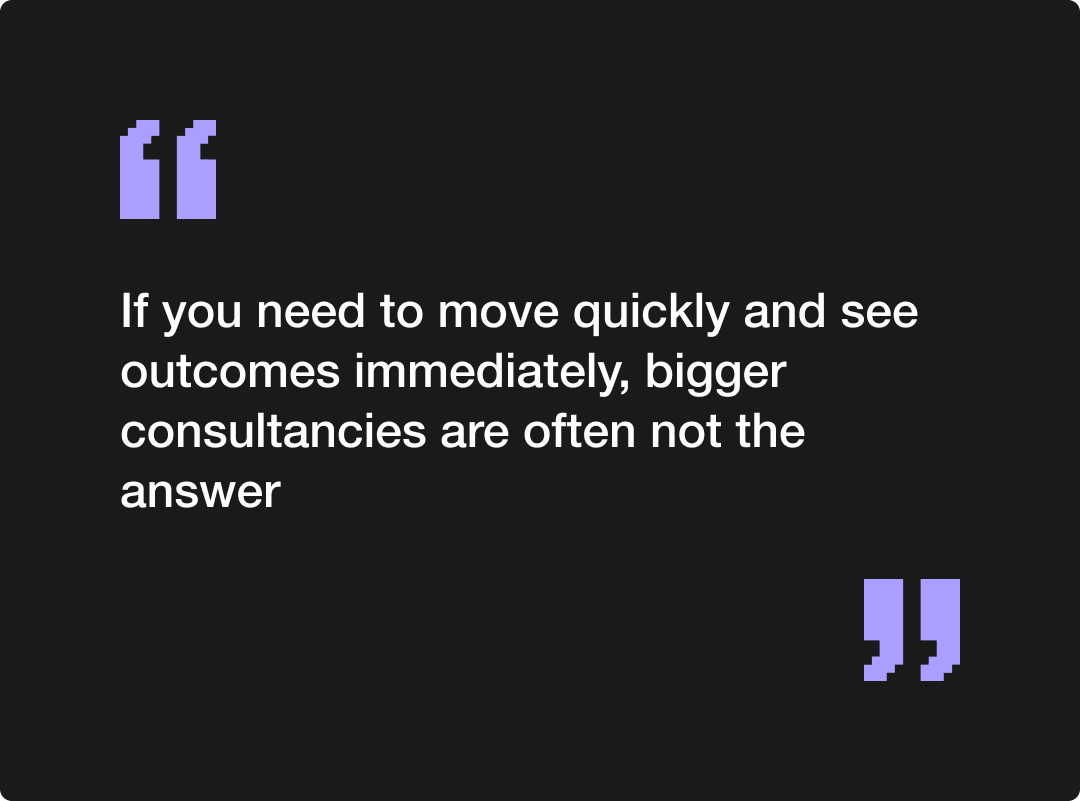
15-20% of revenue
Cost of data quality issues
7 - 12
Disconnected systems
3-6 month
Delays just to get basic
reporting
This leaves them in a tough situation — failure isn’t an option, but traditional approaches aren’t designed to help them avoid it. Mid-market companies end up wasting $500K–$2M annually on failed transformation initiatives.
Through the decade he spent building Limestone Digital, Mark has figured out how mid-market companies can get the customized treatment they require without taking on enterprise-level risk they can’t afford.
Key takeaways:
- The methodology-heavy approaches used by large consulting firms might work for enterprises, but they don’t always align with mid-market budgets and timelines.
- Using the PROOF Framework, mid-market companies can select partners who deliver the custom solutions they require while avoiding enterprise-level risk.
- Companies that modernize quickly using this outcome-focused approach can deploy AI at scale while competitors remain trapped in digital transformation.
Wandering without a destination
When mid-market companies partner with large consulting firms for their modernization projects, they often find themselves working within the methodology-heavy approaches these firms are built to deliver.
These firms naturally focus on their proven methodologies rather than specific business outcomes. For example, Mark highlights the widespread emphasis on the Agile methodology. This approach breaks transformation into smaller chunks, focusing on short sprints, progress visualization, frequent team check-ins, and regular reviews to guide future phases.
A process focused on rapid development and continuous improvement can be highly beneficial. But without a specific goal, even the most sophisticated methodology can become counterproductive. It makes it difficult to know how projects are progressing, when they’re complete, and if they are delivering the intended value.
Many mid-market companies find themselves in contracts guided by established frameworks but without specific success criteria. These open-ended agreements might work for enterprises. However, for mid-market companies, they can inadvertently lead to extended development cycles that consume resources without delivering concrete business value.
“You start pivoting and pivoting without a huge amount of thought,” Mark observes. “And then you end up having invested a ton of resources without anything to show for it.”

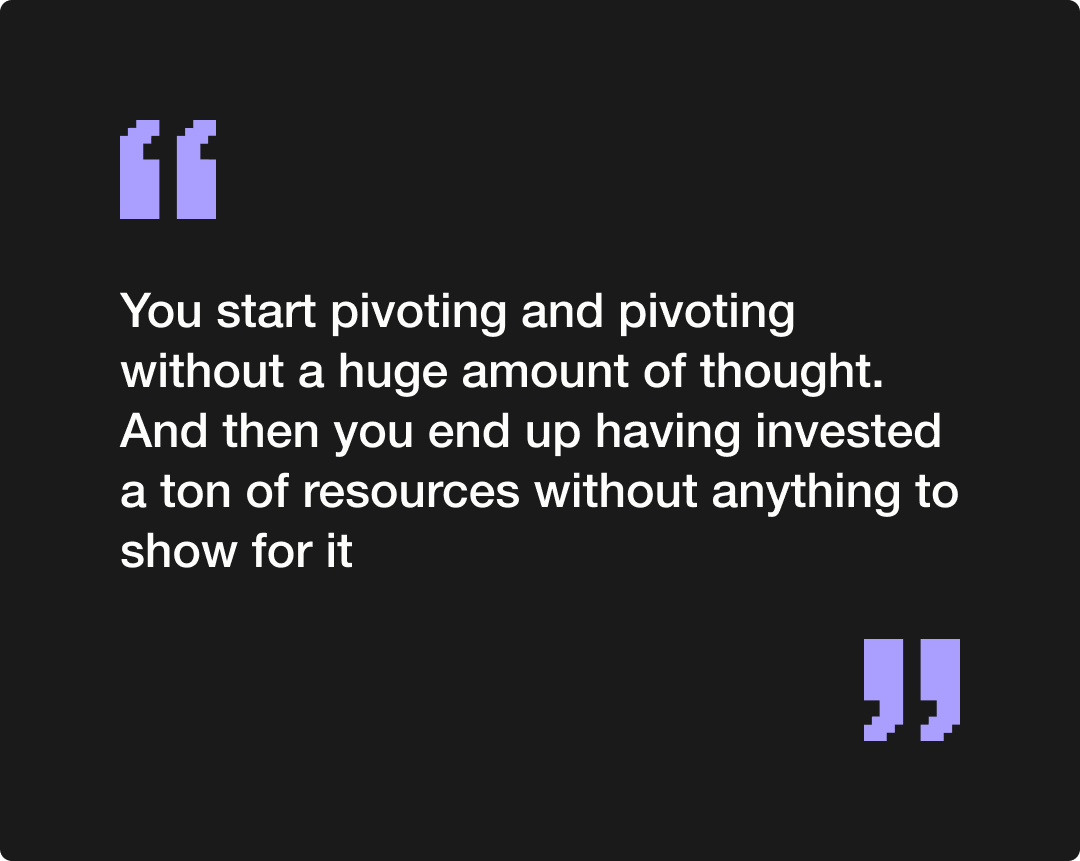
Finding your way with the PROOF Framework
Mid-market companies need to fundamentally shift how they evaluate and engage with technology partners.
Over nine years of working with Limestone customers who had challenging experiences with traditional vendors, Mark has developed the PROOF Framework. It’s a systematic approach that mid-market leaders can use to navigate partner selection, leading to projects that deliver measurable business outcomes within realistic timeframes.
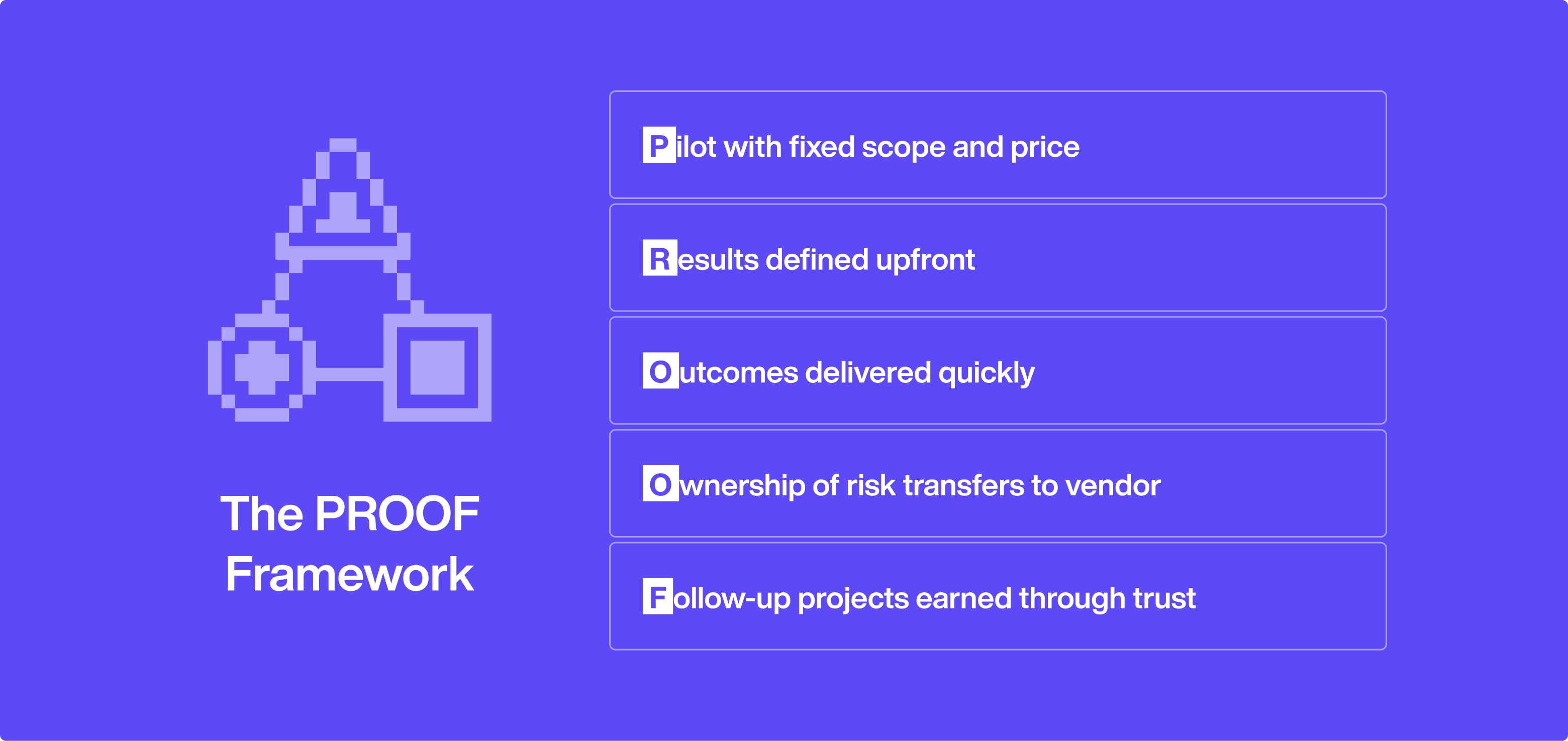
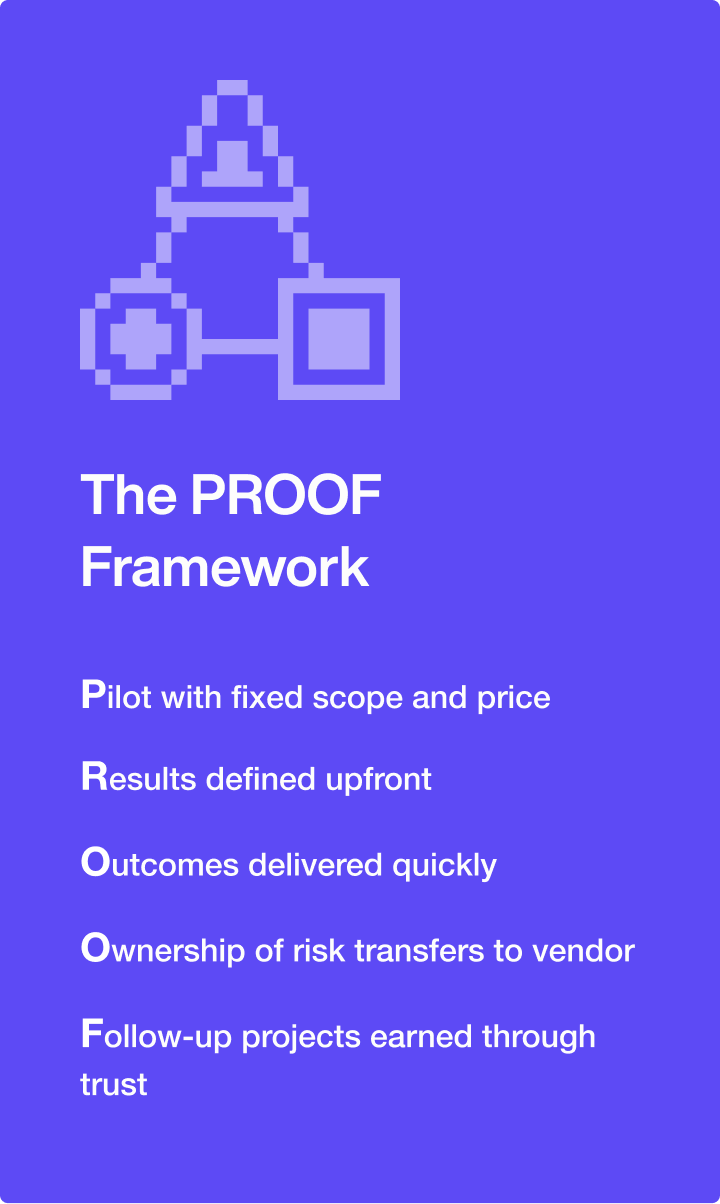
Pilot with fixed scope and price
Instead of accepting vague proposals, mid-market companies should require vendors to start with time-boxed pilot engagements with fixed pricing and specific deliverables.
This helps eliminate uncertainty for mid-market companies operating with a specific, often extremely tight, budget, ensuring that the final invoice is something they can afford.
Results defined upfront
Companies should never enter into an agreement without jointly established success criteria.
Mark and the team at Limestone treat this as a non-negotiable rule. “We will not start an engagement if we don’t know what success looks like for the customer,” he shares.
Whether the goal is to speed up reporting time or improve inventory data synchronization, leaders must demand specific, measurable outcomes before signing contracts.
Outcomes delivered quickly
Successful companies reject long-term transformation roadmaps in favor of 4–6 week cycles. This allows organizations to see measurable results before committing to larger initiatives.
Mark notes that vendors should communicate a structured progression to customers to create full visibility throughout the cycle. This approach proved effective with a logistics client that was struggling with three-week reporting delays and needed instant access to their data.
Limestone established that they would diagnose the bottleneck in week one, fix relevant data pipelines by week three, and complete deployment and necessary training by week six, keeping everyone on the same page as the work was completed.
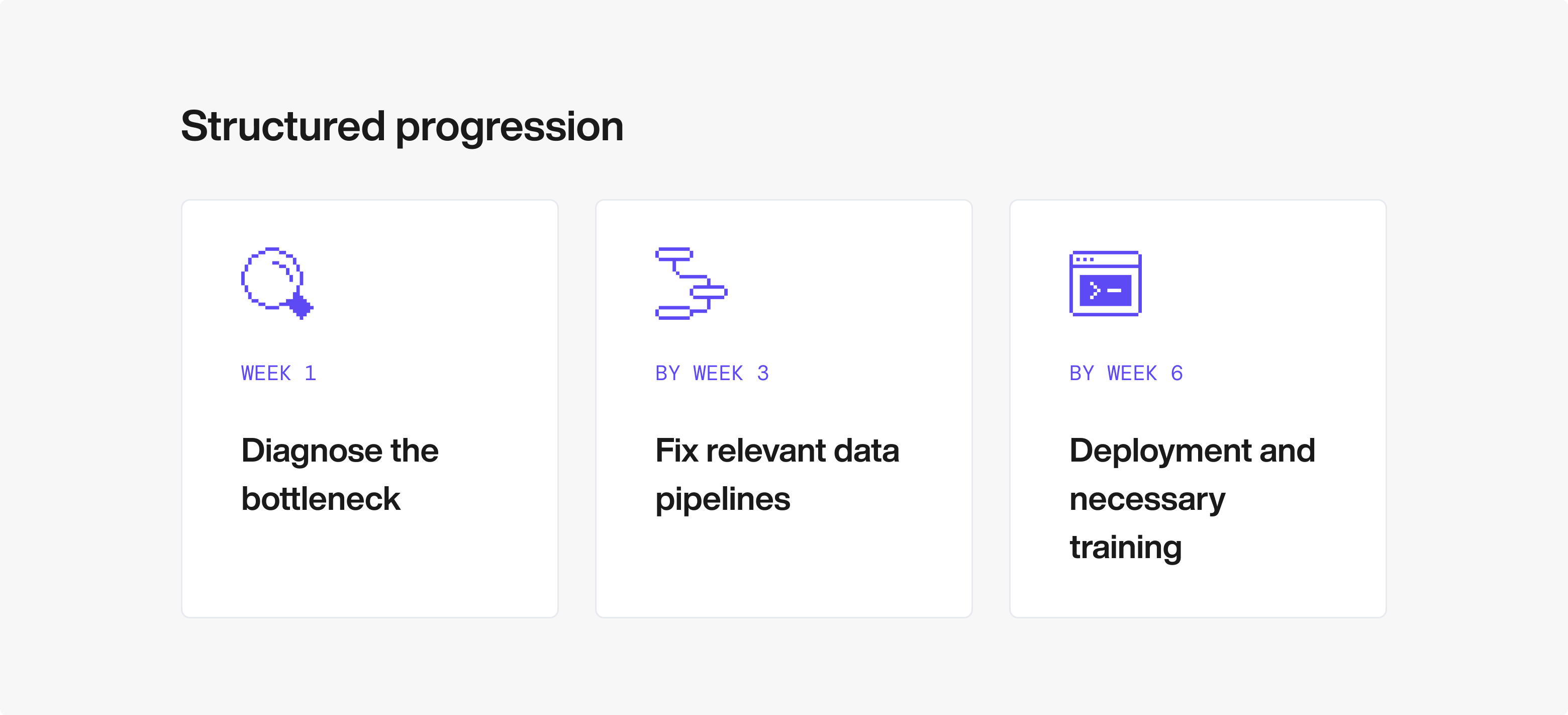
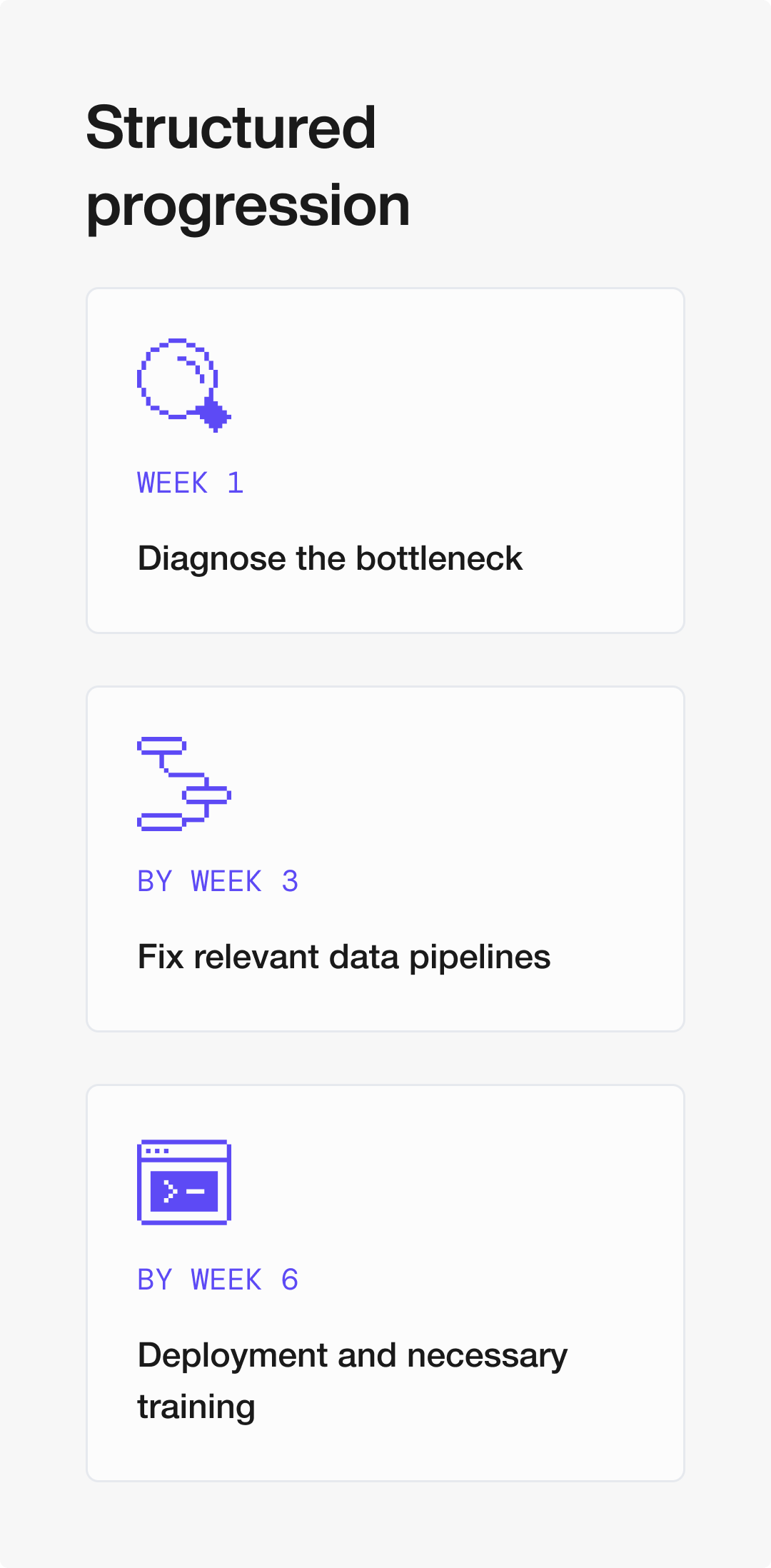
Ownership of risk transfers to vendor
Mid-market companies should only work with vendors who absorb project risk through fixed pricing rather than transferring uncertainty to clients.
They simply can’t afford what Mark calls the “ballpark estimate” problem, where organizations end up paying double what they were quoted due to scope creep and timeline overruns.
Follow-up projects earned through trust
Companies should never assume long-term partnerships or sign multi-year contracts upfront. Vendors should earn the right to tackle additional challenges by demonstrating competence on initial pilots.
As Mark puts it, “We get our foot in the door with high-impact projects that remove guesswork to earn trust. This allows us to continue working on high-priority items with transparency, known outcomes, and risk removed from our customers.”
Act now, move into the future at full speed
With the PROOF Framework, mid-market companies can ensure their digital transformation dollars are well spent.
By prioritizing outcomes over processes, they can find a partner who will guide them through the complexities of data modernization in a timely and affordable manner.
This speed is essential. Mark highlights that the pressure to modernize is only intensifying as the urgency to adopt AI skyrockets.
Companies with fragmented data systems find themselves increasingly at a disadvantage. Meanwhile, organizations that successfully consolidate their data can deploy AI at scale, enabling operational efficiency and decision-making that their competitors can’t match.
The organizations that can modernize quickly using the PROOF Framework will be able to get ahead while their peers remain trapped in transformation, spending resources on process improvements that don’t translate to real business results.




Let's start with a diagnostic.
- Custom mapping of risks, integration points, and tech gaps
- Actionable follow-up playbook if there's a fit










